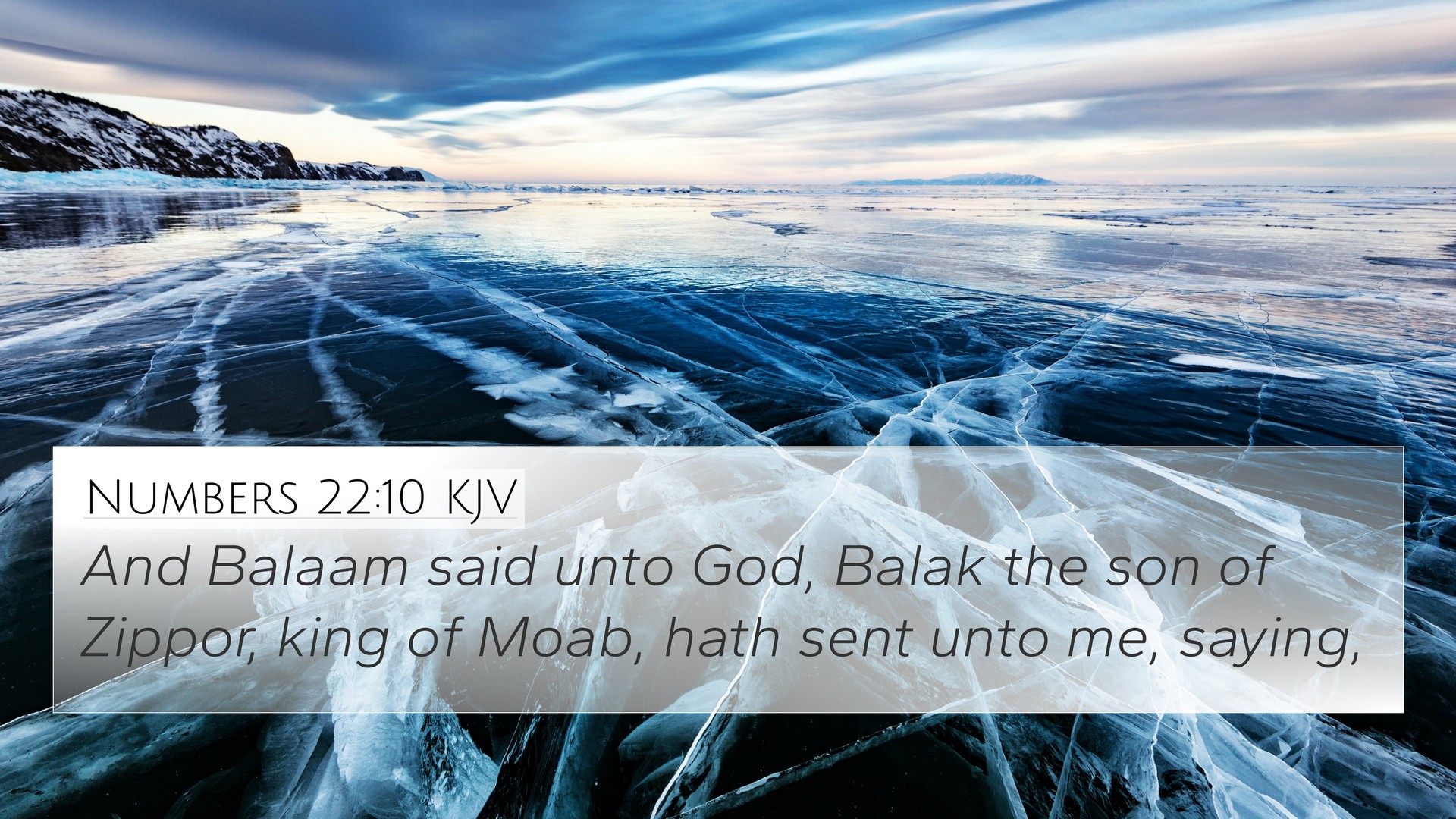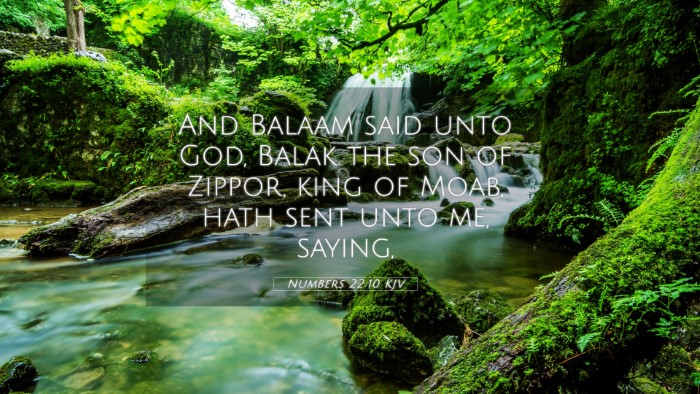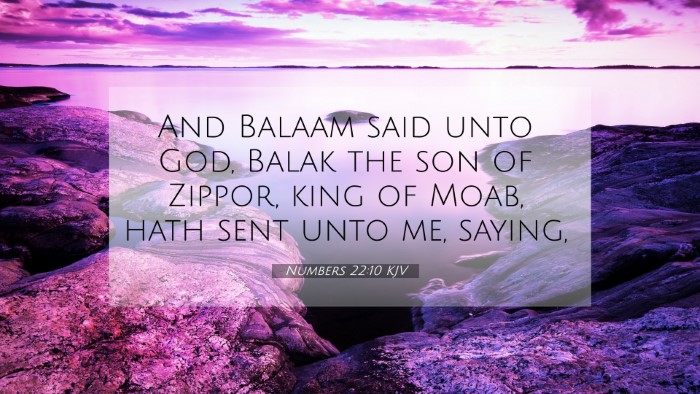Understanding Numbers 22:10
In the Book of Numbers, we encounter a fascinating narrative surrounding the prophet Balaam, who is approached by King Balak of Moab. Numbers 22:10 presents Balaam as he responds to Balak's messengers, declaring, "And Balaam said to God, 'Balak the son of Zippor, king of Moab, has sent to me, saying, 'Behold, a people has come out of Egypt, and they cover the face of the earth. Come now, curse them for me; perhaps I shall be able to fight against them and drive them out.'"
Verse Meaning and Interpretation:
- Balaam's Awareness of God's Authority: Balaam recognizes that he must first inquire of the Lord before proceeding (Matthew Henry). His willingness to engage with God indicates an understanding that any action taken must align with divine will.
- The Nature of Balak's Request: Balak's message reveals the fear and desperation of the Moabites. They see Israel's growth as a direct threat and desire a supernatural means to counteract it (Albert Barnes). The request to curse Israel reflects a misunderstanding of divine favor and Israel's covenant status with God.
- God's Response and Divine Sovereignty: The dialogue initiated by Balaam leads to significant revelations. Balaam's subsequent interactions with God underscore the theme of divine sovereignty. Although Balak seeks Balaam's prophetic curse, God's intentions for Israel are unyielding (Adam Clarke).
- The Importance of God's Guidance: Balaam's inquiry exemplifies the necessity of seeking divine guidance in decision-making. This serves as a reminder of the power of prayer and reliance on God's instructions in our lives (Matthew Henry).
- Israel's Identity and Protection: The context surrounding the request for a curse indicates the protective nature of God over His chosen people. Israel's identity as beloved and blessed is significant in the overarching narrative of salvation history (Albert Barnes).
- Symbol of Cross-Referencing Blessings: This verse opens discussions on the cross-references found throughout Scripture, linking narratives of divine protection and providence, as seen in the lives of other biblical figures facing similar threats.
Bible Verse Cross-References:
- Genesis 12:3 - God's promise to bless those who bless Israel and curse those who curse Israel.
- Exodus 23:22 - God assures protection for His people against adversaries.
- Deuteronomy 23:4-5 - Discussing the nature of Moab's opposition to Israel and God's ultimate judgment against them.
- Joshua 24:9-10 - A retrospective view of God’s defense of Israel from their enemies.
- Psalm 21:11 - A reminder that God would thwart the plans of those who oppose His chosen.
- Micah 6:5 - Reflecting on the historical context of Israel’s deliverance from oppressors.
- Romans 8:31 - An affirmation that if God is for us, who can be against us?
Thematic Connections and Insights:
This verse and its context speak to several underlying themes in Scripture:
- The Power of Prayer: Balaam’s approach to God showcases the importance of seeking divine direction in all instances.
- Divine Favor and Protection: The narrative illustrates God's unchangeable covenant with Israel despite external threats.
- Human Institutions and Divine Plans: The interplay between human attempts to interfere with God's plans — a recurring motif in Scripture.
- Prophecy and its Fulfillment: Balaam’s story ultimately connects various prophecies concerning Israel’s fate.
- Nature of Blessings and Cursings: The duality of blessings as seen in the Abrahamic covenant surfaces prominently in this narrative.
Conclusion: Understanding Numbers 22:10 involves recognizing the complexities of divine governance, the human condition in seeking power, and the steadfast protection God affords His people. Through this verse, readers are encouraged to engage in Bible cross-referencing to discover deeper meanings and connections, reinforcing their understanding of Scripture as a cohesive narrative.


